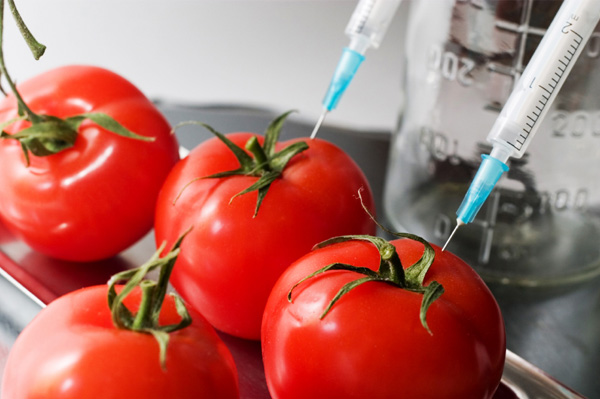What Are Genetically Modified Foods

GM foods are those that include an ingredient in composition from a body which has been incorporated, using genetic techniques, a gene from another species. Using biotechnology can transfer a gene from one organism to another to give it some special quality that is lacking. Thus, transgenic plants can resist pests, better withstand drought, or better resist some herbicides.
Genetically modified foods (GM) emerged in the mid 1990s and were so rapidly adopted by growers today, it is estimated that 70% of food produced contain at least one ingredient that has been genetically modified.
Resistant to pests, tomatoes that do not decompose so quickly, rice seeds enriched with vitamins, meat from animals and genetically modified with additives poultry and eggs, vegetables are just some examples of transgenic foods we eat every day.
It has surely passed us going to a department store and noticed fruits and vegetables that seem drawn from a movie or an advertisement, Are these better products?
One of the staples in our food pyramid is milk. What you might not know is that most of the world milk production is transgenic. The cattle are injected with a growth hormone, that makes them produce up to twice as much milk.
This hormone is a major concern by critics of GM foods, as there is a fairly established correlation between the effects and the development and growth of cancer. It has been linked to breast cancer, prostate and colon.
Wheat also has been genetically modified for resistance to drought, pests and insects, and now every day more people have become intolerant to this food, mainly celiac.
Soy and corn are of food on which more has worked producing genetically resistant to almost all mutations, but when they are processed and consumed have “side effects” on our body.
The genetically modified to contain higher proportions of vitamins rice has been rejected by countries like Japan, for example, because not yet the consequences that may result in our body and its everyday mass consumption are known.
Large corporations say that this type of genetic engineering in food is needed to produce the necessary amount, at a low cost to feed the entire world population, justifying while ecologists argue that the amount of food that is produced in the world is enough for all its inhabitants, but is badly distributed.
In any case, whatever the final consumer choice, it is worth knowing which products contain GMOs.
